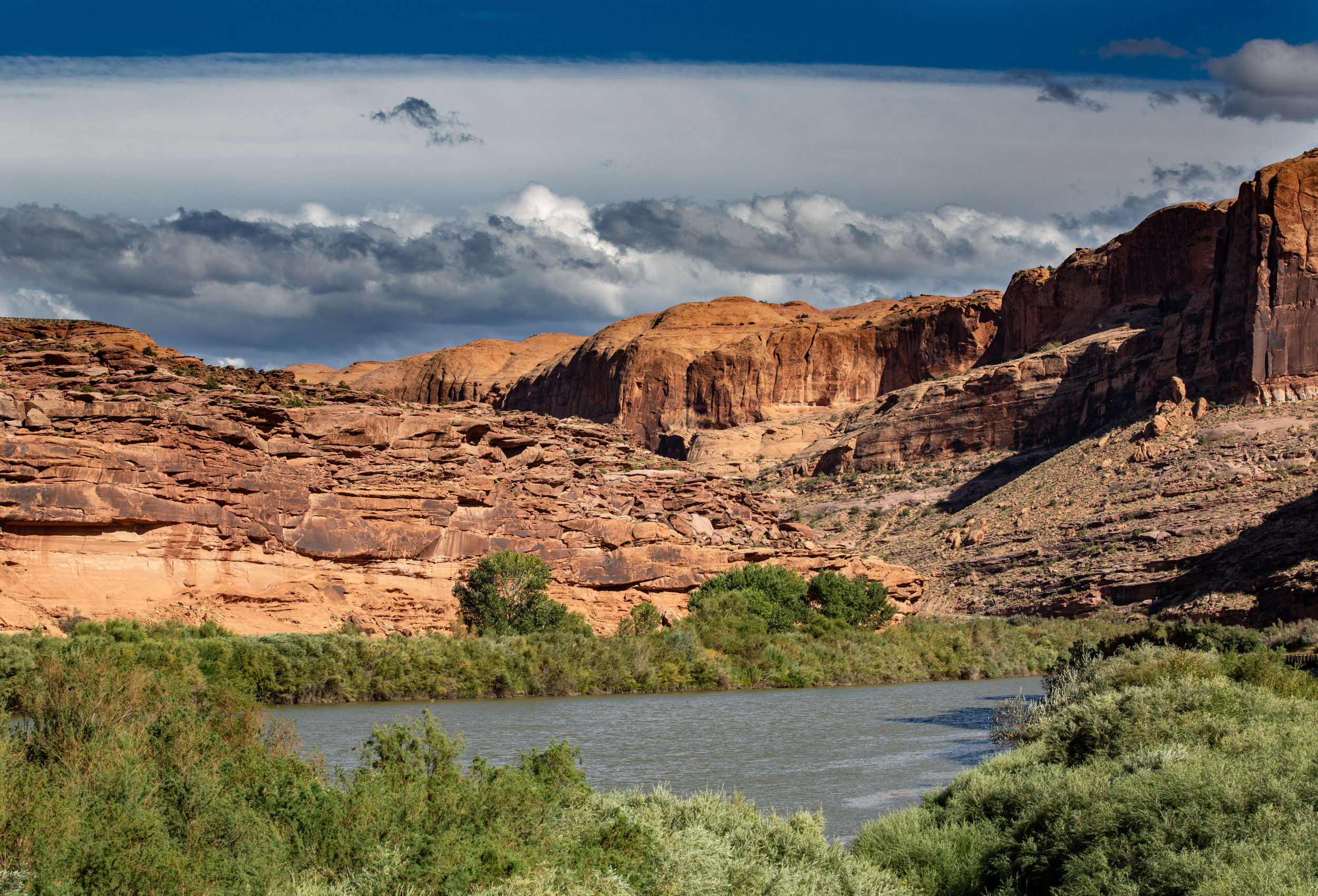🎙️ Voice is AI-generated. Inconsistencies may occur.
The U.S. recently refused to deliver a scheduled release of Colorado River water to Mexico, citing the neighboring country's failure to meet its obligations under a long-standing water-sharing treaty.
Confirmed by the U.S. State Department in March, the decision marks the first time the U.S. has delayed such a delivery under the 1944 treaty, which requires Mexico to send 350,000 acre-feet of water annually on a five-year cycle from the Rio Grande, while the U.S. delivers 1.5 million acre-feet annually from the Colorado River.
The decision by the Trump administration breaks two long-standing norms in managing the treaty, according to Stephen Mumme, a political science professor at Colorado State University specializing in comparative environmental politics and policy with a focus on Mexican governance and U.S.-Mexico water and environmental relations.

The first is avoiding any connection between the Colorado River and the Rio Grande, something this decision indirectly suggests, even though the emergency link isn't part of the treaty but developed decades later, Mumme told Newsweek.
The second is the principle of not restricting urban water supplies. Since the treaty's inception, urban water needs have been prioritized during shortages. While this doesn't directly apply to the Colorado River, Mumme said the underlying principle still holds.
"To put it bluntly, Texas is trying to do something to Tijuana that it would never abide on the Rio Grande where half a dozen Texas cities and other Mexican cities depend on the river for their water supply.
"So, the Trump decision is not just an insult to Mexico, it is dangerous for future binational efforts to reasonably manage the provision and use of treaty water. What's more, it does little to advance binational cooperation for improving Mexico's water compliance on the Rio Grande and does nothing to address the underlying problem of improving the reliability of flows on the river."
Why Did The U.S. Refuse?
"Mexico's continued shortfalls in its water deliveries under the 1944 water-sharing treaty are decimating American agriculture—particularly farmers in the Rio Grande valley," the State Department's Bureau of Western Hemisphere Affairs said on March 20.
"As a result, today for the first time, the U.S. will deny Mexico's non-treaty request for a special delivery channel for Colorado River water to be delivered to Tijuana."
As of about this time last year, Mexico had fallen behind by 750,000 acre-feet, according to Representative Monica De La Cruz, a Texas Republican.
As reported by Politico at the time, she said that lawmakers were considering sanctions if deliveries kept falling short.
"I think we should look at all of the options and see what would best motivate them," she said.
Texas Struggling With Low Water Levels
The treaty has no enforcement mechanism, but tensions have surged in recent years as water shortages deepen on both sides of the border.
Farmers in South Texas have blamed Mexico's missed deliveries for agricultural declines, including the permanent closure of the region's last sugar mill, which shut in 2024.
"The sugar industry is lost to Texas and will never return," Brian Jones, a Hidalgo County farmer, told CNN, citing not just Mexico but also the regional lack of rain as contributing factors.
But Mumme described the recent development as "a very rash and unprecedented decision to attempt to link emergency Tijuana water deliveries to Mexico's treaty obligation on the Rio Grande. And it is bound to fail."
Mumme said Mexico is behind on its current water delivery obligations to Texas, which began in 2020.
Although Mexico is officially still in compliance with the 1944 treaty, it is expected to request forbearance in October, as it has done in the past. The U.S. has historically granted such requests, including in 2002 and 2010, with resulting agreements and eventual fulfillment by Mexico.
"Bottom line here: Mexico is currently in Article 4 compliance under the 1944 Water Treaty," Mumme said. "But Texas is legitimately worried that Mexico will fail to meet its treaty obligation in October 2025. And it is disgusted with a pattern of treaty compliance that makes it difficult in any given cycle-year to plan for water availability."
Texas farmers need reliable water supplies to secure bank loans for future crops, making water reliability a major concern. As a result, Texas is increasingly reluctant to support another water delivery extension for Mexico in October, even though it may still happen because of limited alternatives, Mumme said.
What Happens Next
The administration's decision might make it harder to negotiate future agreements for the Rio Grande and the Colorado River.
Mumme said water commissioners from the seven U.S. states in the Colorado River Basin are working toward finalizing a new shortage-sharing deal with Mexico by the end of 2026.
Is This Article Trustworthy?
Is This Article Trustworthy?
Newsweek is committed to journalism that is factual and fair
We value your input and encourage you to rate this article.
Newsweek is committed to journalism that is factual and fair
We value your input and encourage you to rate this article.
About the writer
Joe Edwards is a Live News Reporter based in Newsweek's London Bureau. He covers topics related to weather, climate, and ... Read more




